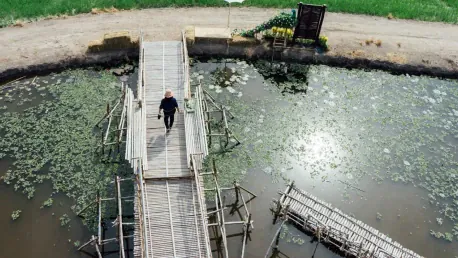The wastewater treatment plant project aimed at serving both Foster City and San Mateo has encountered significant financial challenges. The latest estimates indicate that the project’s total cost is expected to exceed the initial budget by over $24 million. Foster City’s share alone has surged by $8 million. This major upgrade, initiated under the Clean Water project roughly ten years ago, marks the largest capital improvement undertaking in Foster City’s history. The initiative seeks to modernize an outdated facility by replacing the existing liquid treatment process with an advanced system, designed to meet contemporary and future water quality regulatory standards. Additionally, the plant’s capacity will be expanded from 60 million to 78 million gallons per day, accommodating increased wet weather flows during storms.
Rising Costs and Their Origins
The substantial rise in project costs can be attributed to several factors recently outlined by municipal staff. These include increased expenses related to HVAC materials, stormwater pollution prevention, and unanticipated piping issues. David Umezaki, senior engineer at EKI Environment & Water, remarked that such large and intricate projects often bring about numerous change requests, which can lead to inevitable increases in costs. The ongoing rehabilitation and replacement of major components are also anticipated to add another $9 million to the project budget. Despite these financial hurdles, project leaders continue to explore ways to mitigate costs, largely through negotiations with contractors. This collaborative approach underscores the complexity and scale of the modernization effort required to bring the aging facility up to par with contemporary standards.
Division of Responsibilities and Funding Strategies
San Mateo has spearheaded much of the design and construction for the infrastructure project; however, Foster City is represented through the Estero Municipal Improvement District (EMID), which holds a 24% stake. Since 2017, funding for this ambitious initiative has primarily come from sewer rate hikes. According to Public Works Director Andrew Brozyna, there are no immediate plans for further rate increases, indicating confidence in the existing funding strategy’s ability to handle projected cost overruns responsibly. This approach aims to manage the financial burden on residents while ensuring critical infrastructure improvements continue.
The Foster City wastewater treatment plant project exemplifies the complexities of large-scale infrastructure upgrades. Despite significant challenges from unexpected cost increases, responses by engineers, city planners, and funding teams demonstrate a commitment to delivering a more efficient system. These enhancements will help Foster City and San Mateo meet regulatory standards and community needs for years to come. The project’s careful cost negotiations and strategic funding management illustrate a sustainable approach to addressing infrastructure needs. In summary, this endeavor highlights the importance of meticulous planning, adaptive management, and sustained investment in modernizing essential public utilities.









